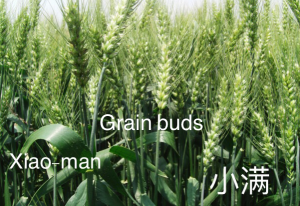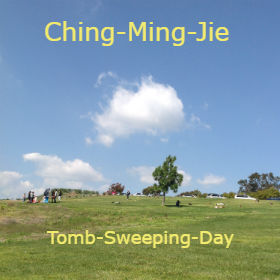
Xiao-man (noun) 小满 (Chinese): 8th solar term (Grain buds), literally in Chinese “Xiao” 小 = small, “Man” 满 = full.
In the ancient Chinese calendar also known as the “agriculture calendar”, Xiao-man is the 8th term out of 24 solar terms (节气) in a year. During Xiao-man, most of the summer crop grain buds and seeds begin growing but not fully matured. Xiao-man begins when the Sun reaches the celestial longitude of 60° and ends when it reaches the longitude of 75°. It more often refers in particular to the day when the Sun is exactly at the celestial longitude of 60°. In the Gregorian calendar, Xiao-man usually begins around 21 May and ends around 5 June (6 June East Asia time).
In ancient China, Xiao-man was divided into three periods 三候 with 5 days for each: in the first-period 苦; bitter vegetables have flourished foliage, in the second-period 靡草死; shady weeds start wilting, during the third period 麦秋至; the seeds of the summer crops (wheat) begin to fill, but they are not yet full nor mature. Xiao-man is the second solar term in the summer.
Since ancient times, Xiao-man has been a solar term for agricultural purposes in the lunar calendar. Xiao-man is still remembered and celebrated as a Chinese traditional festival.

